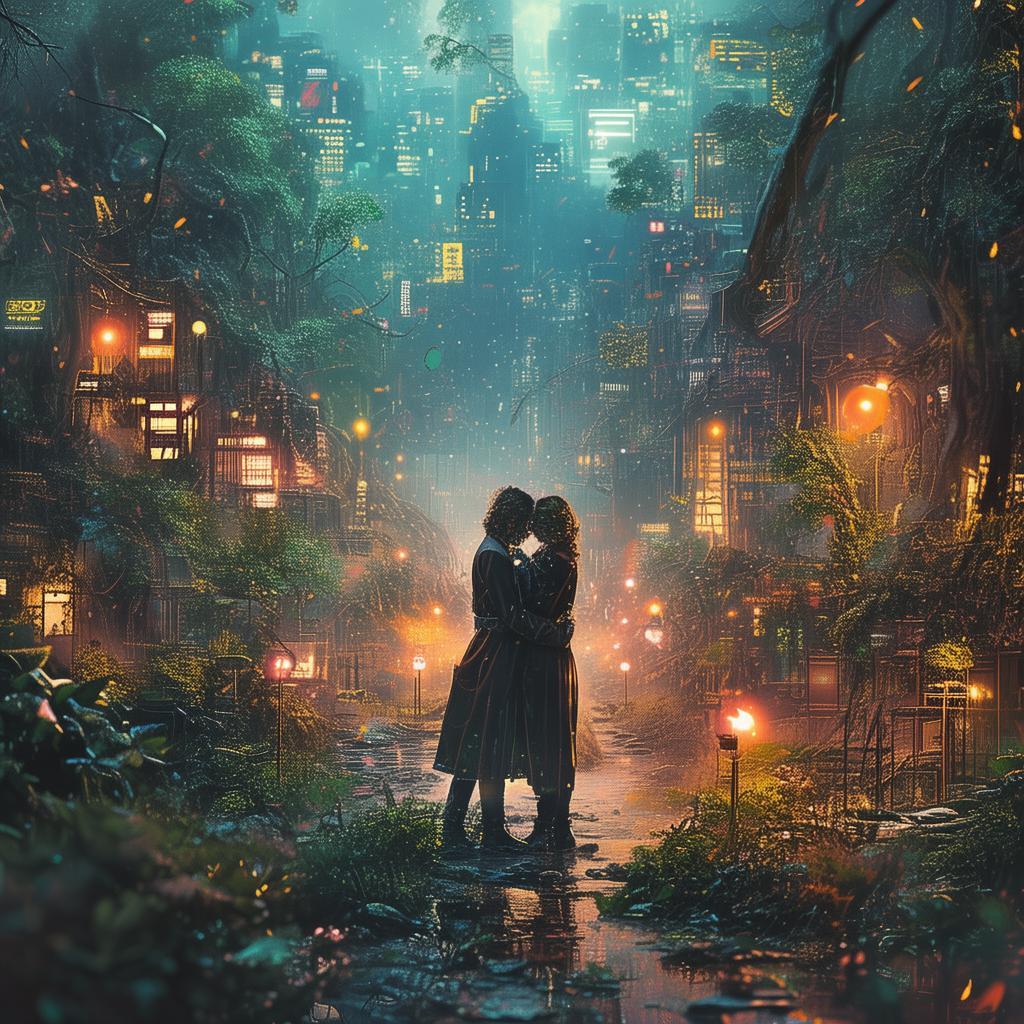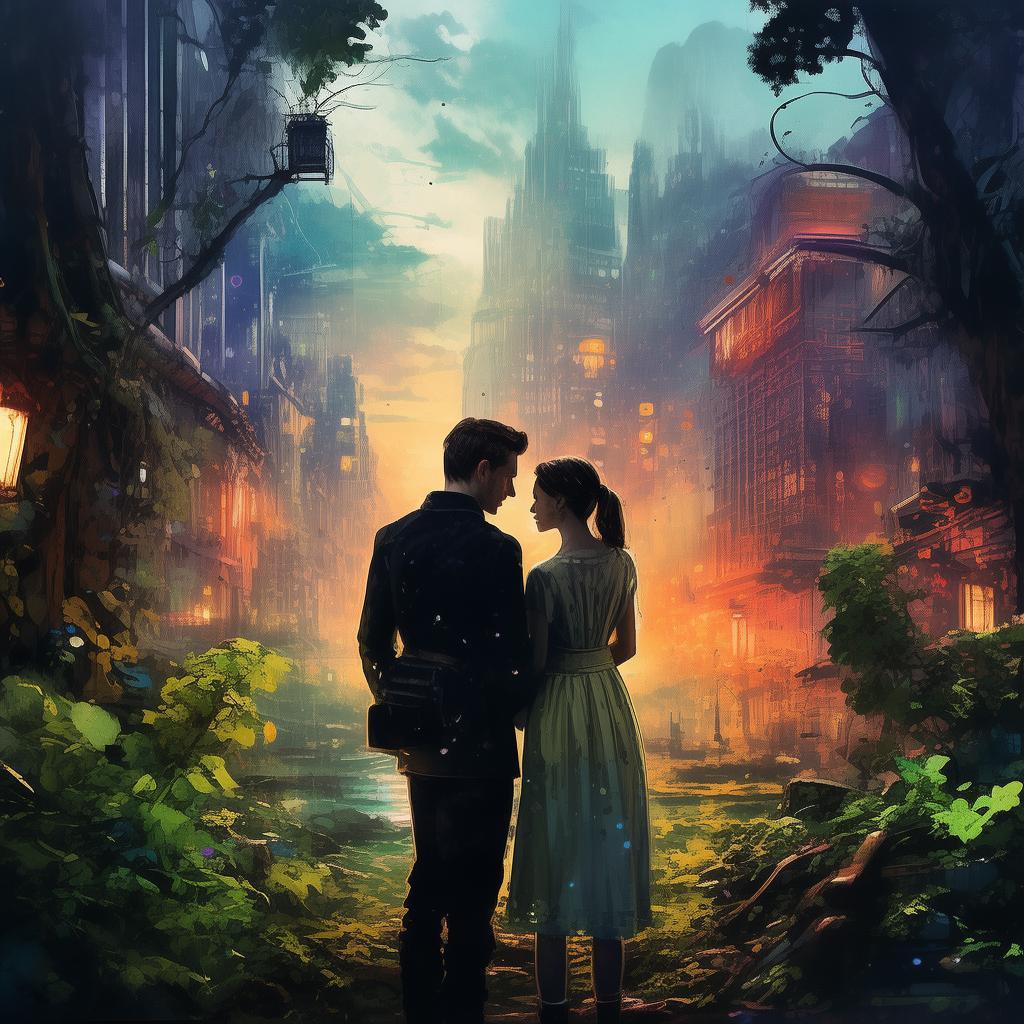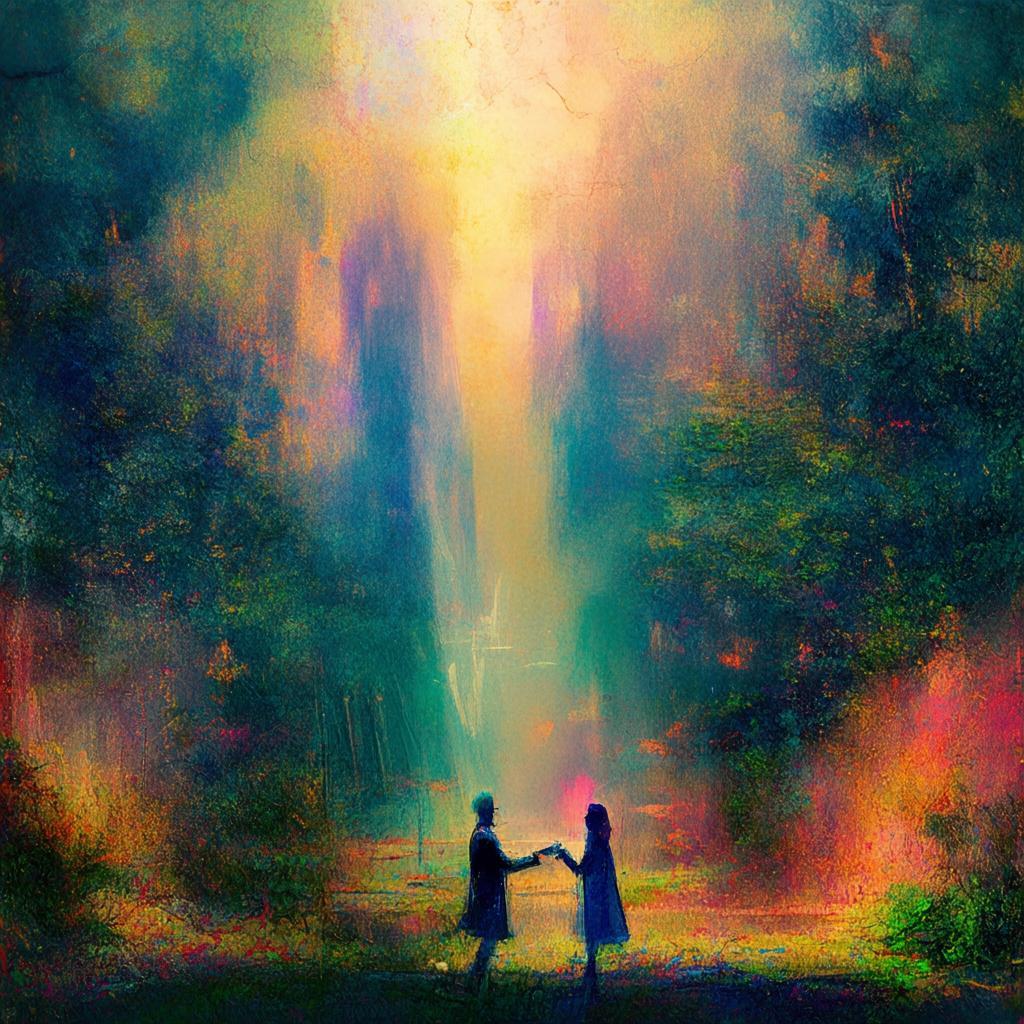The Lyrical Love of Liang and Mei
In the heart of the ancient village of Fenglin, nestled among rolling hills and whispering bamboo groves, there was a tale that had been whispered through generations. It was the story of Liang, a young and ambitious minstrel, and Mei, a graceful and intelligent daughter of the village elder. Their love was as vibrant as the springtime blooms that adorned the village, yet it was as forbidden as the autumn leaves that fell from the ancient trees.
Liang, with his heart as wide as the river that ran through Fenglin, had always been a dreamer. He played his lute with such passion that the notes seemed to dance in the air, weaving tales of love and longing. Mei, on the other hand, was a woman of reason, her mind as sharp as the blades of the farmers' scythes. She had been taught to adhere to the customs of the village, to respect the ancient traditions that had sustained her people for centuries.
Their love was sparked one evening under the moonlit sky, as Liang played his lute by the river's edge. Mei, with her long hair flowing like a river itself, had come to the banks to wash her clothes. The music, a siren's call, drew her closer until she was standing right in front of him. Their eyes met, and in that instant, a connection was forged that neither could ignore.
Every day, they found a way to meet, hidden away in the shadows of the bamboo or beneath the wide arms of ancient oaks. They spoke of dreams, of love, of a future together. But as the days turned into weeks, they realized that their love was not just forbidden, but dangerous. The elders of the village had long ago decreed that the line between the minstrels and the nobility was to be respected, and any union between them would bring ruin upon their families.
One evening, as the moon hung like a silver coin in the sky, Liang and Mei were caught by the village elder. The elder's face was a mask of disappointment, his voice a chilling reminder of the village's unwritten laws. "You must choose between your people and this forbidden love," he said, his words like a knife to their hearts.
Mei, with her eyes shining with the courage of a thousand suns, stepped forward. "I choose Liang," she declared, her voice strong and unwavering. "Love is not a crime, and our hearts cannot be bound by the words of men."
The elder's face turned pale with rage, but he knew that he could not force them to part. He turned to Liang, whose face was etched with a mixture of love and fear. "You will leave Fenglin, or you will face the consequences," he warned.

Liang, with a heart heavy as the earth, knew what he had to do. He packed his lute and set out into the world, determined to make a life for himself and Mei, somewhere beyond the reach of the village's ironclad rules. He traveled far and wide, his lute a companion to his soul, and his music a beacon of hope for his love.
As the seasons turned and the years passed, Mei's hope for Liang's return never waned. She continued to live by the river, her heart always listening for the sound of Liang's lute. The village elder had been right; Liang had faced many trials, but none had been as hard as the silence that followed his departure.
One spring evening, as the world was awash with the colors of rebirth, Mei heard the sound of a lute. She rushed to the riverbank, her heart pounding with hope. And there, standing before her, was Liang, his lute in hand, his face alight with the joy of his return.
The villagers, who had once forbidden their love, watched in awe as Liang and Mei stood together, their bond unbreakable. The elder, now an old man, approached them with a heavy heart. "I have failed you," he said, his voice filled with sorrow. "Your love has shown me the true strength of the human spirit."
With the elder's blessing, Liang and Mei were finally free to live their love. They built a new life in a distant land, where their love was cherished and their music was celebrated. And in the ancient village of Fenglin, the tale of Liang and Mei, the minstrel and the daughter of the elder, became a ballad that would be sung for generations to come, a testament to the power of love that can overcome even the most stringent of traditions.
✨ Original Statement ✨
All articles published on this website (including but not limited to text, images, videos, and other content) are original or authorized for reposting and are protected by relevant laws. Without the explicit written permission of this website, no individual or organization may copy, modify, repost, or use the content for commercial purposes.
If you need to quote or cooperate, please contact this site for authorization. We reserve the right to pursue legal responsibility for any unauthorized use.
Hereby declared.









